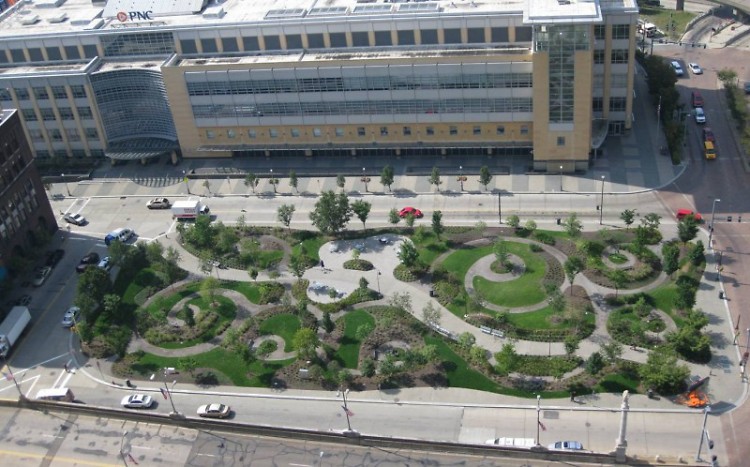How Does Architecture Promote The Use Of Green Spaces And Urban Parks?

Picture yourself walking through a park filled with lush greenery, towering trees, and vibrant flowers. Can you feel the calmness enveloping you? From the sight of the clear blue sky to the sound of birds chirping to the smell of fresh air, being surrounded by nature evokes an inexplicable feeling of joy within us.
But did you know that spending time in parks is not just about having a good time? In fact, there are many reasons why parks matter and how they significantly affect our city life.
The Benefits of Parks
1. Mental Health
Spending time in parks and green spaces has been proven to produce positive effects on our mental well-being. Studies have shown that people who had access to green spaces had lower levels of anxiety and depression as compared to those who did not. Walking through parks is also known to have a calming effect on our minds, allowing us to destress and de-clutter our thoughts.
2. Physical Health
Not only do parks provide us with access to outdoor activities, but they also promote physical activity. Walking, jogging or cycling through parks provide a great way to exercise and keep our bodies healthy. Parks that offer outdoor sports facilities, such as basketball and soccer courts, present more opportunities for physical activity.
3. Social Health
Parks not only provide a space where we can bond with our friends and family, but they also facilitate social interaction with people we might not have met otherwise. Community events and festivals held in parks can promote a sense of camaraderie among residents.
4. Environmental Health
Parks also play a vital role in improving the environment. By promoting the growth of trees and other plant life, they help reduce air pollution, providing us with fresher and cleaner air to breathe. Additionally, parks play an essential role in preventing soil erosion, conserving water and enhancing biodiversity.
5. Economic Benefits
Parks also contribute to the economy. Properties located in proximity to parks tend to have higher resale values, due to their aesthetic and social qualities. Tourists are often drawn to visit cities that have a reputation for beautiful parks, which can stimulate the local economy.
Impact on Communities
When people think of parks, they might imagine massive green spaces only found in cities. However, parks come in various forms, such as community gardens, urban nature preserves, and pocket parks. These parks can have an even more significant impact on communities.
Community Gardens
Community gardens provide fresh and healthy food for residents and are an excellent way to bring people together to bond over a shared interest. Additionally, community gardens promote self-sufficiency, as residents can learn to grow their food.
Urban Nature Preserves
Urban nature preserves are playing a critical role in preserving the environment and remind residents of the natural beauty found in their city, helping them connect to nature. These preserves help keep the local ecosystem robust and preserve wildlife.
Pocket Parks
Pocket parks are small parks that are built on vacant or underutilized urban land. These parks provide a green space that might have otherwise been left unoccupied. Additionally, pocket parks can spark social interactions among the people who live and work nearby.
FAQs
1. How do parks help in reducing crime?
Parks can help reduce crime by providing an environment that feels safe and welcoming for people to gather. Parks that are near residential neighborhoods can provide nearby residents with an area they can monitor and protect. Additionally, parks that are well-maintained can deter crime by reducing the number of potential hiding places and obstacles that could impede escape routes for criminals.
2. What is the impact of parks on property values?
Studies have indicated that properties located near parks tend to have higher resale values, due to their aesthetic and social qualities. A view of a park or greenery from the home can often be preferred over a view of buildings or roads.
3. Is there any correlation between parks and mental health?
Studies have found a link between the presence of green spaces and access to parks and improved mental health. Time spent in parks can reduce symptoms of anxiety and depression, making it beneficial for our mental health.
4. Can parks reduce air pollution?
Green spaces play a critical role in reducing air pollution as they remove pollutants from the air through photosynthesis. Furthermore, parks provide habitats for plants and animals, contributing to the biodiversity of the environment and reducing air pollution levels.
5. Can parks be used as a tool for teaching?
Parks and green spaces can be used as a valuable tool for education. These spaces can be used to teach students about the environment, wildlife, and the ecosystem. Additionally, using parks as a tool for teaching can help introduce green space concepts to communities that might have little access to parks.
Now that we know the impact parks have on our city life. We must make sure to utilize them as much as possible for the betterment of our mental, physical, and social well-being, as well as the environment, and the economy. Parks are not just a luxury but a necessity for our overall well-being and the health of our communities.




Post a Comment for "How Does Architecture Promote The Use Of Green Spaces And Urban Parks?"